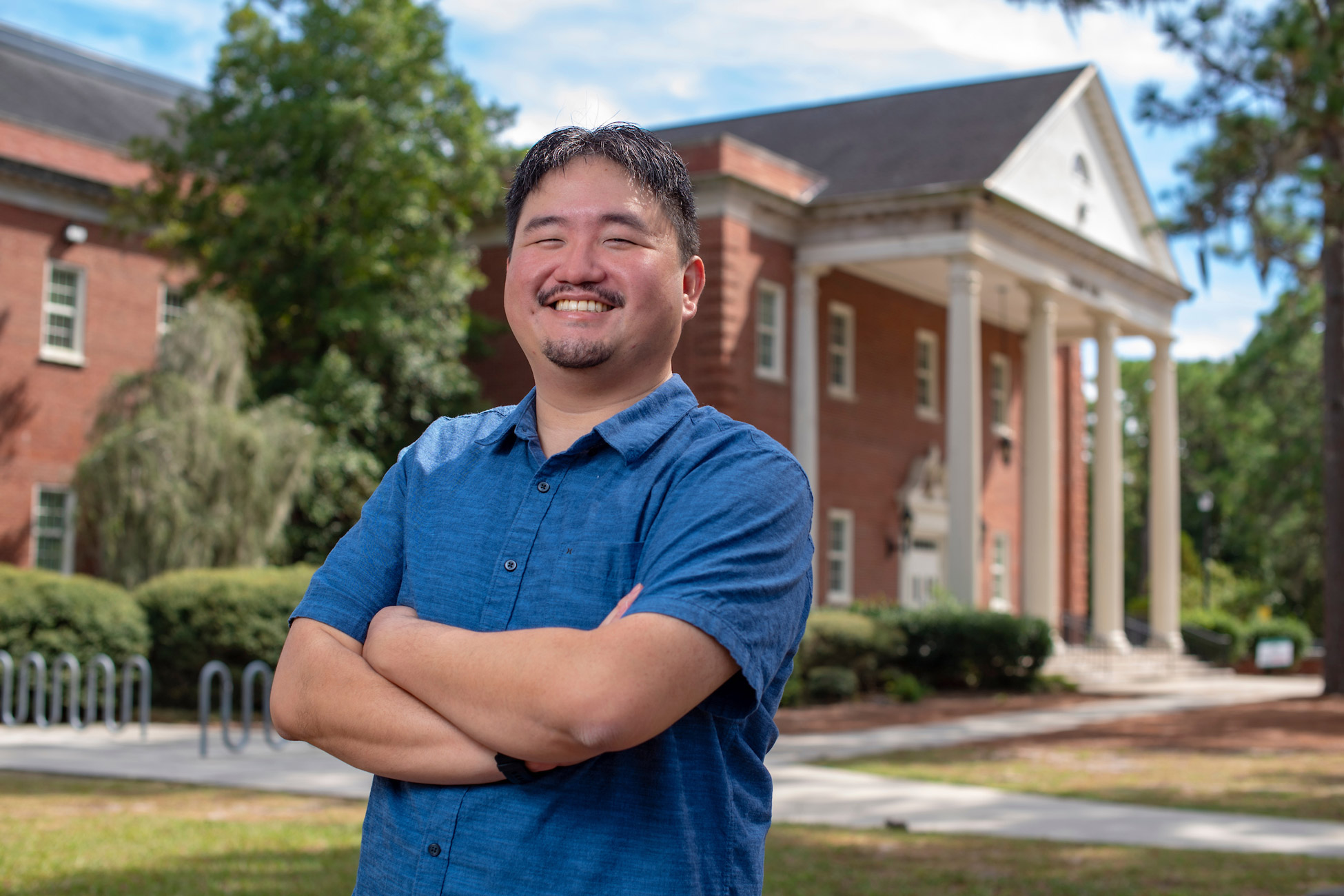
Photo: JeffJanowski/UNCW
Blake Ushijima, assistant professor in the Department of Biology and Marine Biology, recently co-authored a groundbreaking study in partnership with the Smithsonian’s National Museum of Natural History revealing that a bacterial probiotic can slow the spread of stony coral tissue loss disease (SCTLD) in wild corals. The findings demonstrate a promising alternative to antibiotics for managing this devastating coral disease.
Ushijima has worked closely with the Smithsonian Marine Station at Fort Pierce, Florida, alongside other University of Florida and Nova Southeastern University collaborators, on research aimed at combating SCTLD through probiotic treatments. His work ultimately led to the discovery of the probiotic strain used in the study, and he was instrumental in the development and deployment of the technologies used to apply it in the field.
"This is an exciting study because it is the first time a probiotic has been demonstrated to combat an ongoing coral disease in the wild,” said Ushijima. “While this is more of a proof-of-concept study, this opens various research doors that will transform how we protect our coral reefs.”
Ushijima has been at the forefront of coral probiotics research, leading efforts to develop an effective bacterial probiotic for treating and preventing SCTLD, which is rapidly killing Caribbean corals. Unlike other pathogens, which usually target specific species, SCTLD infects more than 30 different species of stony corals, and researchers have yet to identify the disease’s exact cause. In a matter of weeks to months, the disease can devastate an entire coral colony.
The new study highlights a promising approach that involves applying the probiotic across entire coral colonies, helping to prevent further tissue loss. This method offers a viable alternative to antibiotics, which provide only temporary protection and carry the risk of fostering antibiotic-resistant strains of the disease.
In 2023, Ushijima published a study on the probiotic McH1-7, which produces multiple antibacterial compounds, making it an ideal candidate to combat SCTLD. To test its effectiveness in the wild, the research team applied the treatment by covering infected coral colonies with weighted plastic bags and administering the probiotics inside, ensuring full contact across the colony. After two years of monitoring, it was found that the probiotics slowed or stopped the disease from spreading in all eight colonies treated inside bags.
The results mark one of the first successful uses of probiotics to treat coral disease in the wild, offering new hope for reef conservation. As researchers continue refining these methods, the approach could play a key role in protecting vulnerable coral ecosystems across the Caribbean and beyond.
The Ushijima Lab at UNCW focuses on coral disease and developing technologies to protect reefs, offering a variety of research opportunities to undergraduate and graduate students.
This article has the following tags: Research & Innovation UNCW News Homepage CSE - College of Science & Engineering myUNCW - Faculty & Staff Research & Innovation Area Innovation & Discovery


